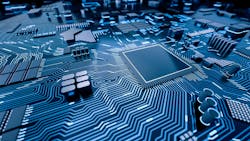Will “chemical computers” become a new type of artificial intelligence that can work like human brains transmitting signals?
If you’re not familiar with chemical computing, you’re not alone. I had not heard about the concept until I read a column by Forbes contributor Chuck Brooks entitled “4 Mind-Boggling Technology Advances In Store For 2023.”
No. 2 on his list was cognitive computing technologies, which included chemical computing. He describes it as “the ability of chemical systems to compute by acting as logic gates.” He continues by quoting computer scientist Andrew Adamatzky, who states:
“We are already using chemical computers, because our brains and bodies employ communication via the diffusion of mediators, neuromodulators, hormones, etc. We are chemical computers.”
Brooks links to an article by OpenMind that describes chemical computing in more detail. According to the article, chemical computing traces its roots to Russian chemist Boris Belousov, who noted in 1959 that he saw a chemical reaction occur and then reversed itself, while he was trying to simulate a metabolic action.
The discovery became known as the Belousov-Zhabotinsky reaction after a student named Anatol Zhabotinsky took over the project from Belousov. I’m not an engineer, so I needed to find an abbreviated Cliffs Notes description of chemical computing to gain a better understanding of how it works. Here’s how the website EasyTechJunkie describes it:
“A chemical computer, as of 2011, is an experimental computer that primarily uses chemicals instead of hardware to store and move data. While some hardware — such as a monitor — will still be required, many internal hardware pieces will no longer be needed for the computer to function. Such a computer works much like a brain, because data can move in all directions, instead of only in rigid paths. This process works by taking advantage of the Belousov-Zhabotinsky reaction, and data move according to bromine levels.”
According to EasyTechJunkie author Alex Newth, among the benefits of chemical computing is ease of production and increased durability compared to traditional computer hardware. Another potential benefit is the ability to operate chemical computers without electricity, according to biophysicist Vladimir Vanag, from the Centre for Nonlinear Chemistry at the Immanuel Kant Baltic Federal University in Russia.
“No viruses, autonomous regime of working, and extremely high efficiency,” he says.
It doesn’t look like you’ll be able to order a chemical computer for your home office anytime soon, but it’s another technology to put on your watch list for 2023 and beyond.
About the Author
Jonathan Katz
Executive Editor
Jonathan Katz, executive editor, brings nearly two decades of experience as a B2B journalist to Chemical Processing magazine. He has expertise on a wide range of industrial topics. Jon previously served as the managing editor for IndustryWeek magazine and, most recently, as a freelance writer specializing in content marketing for the manufacturing sector.
His knowledge areas include industrial safety, environmental compliance/sustainability, lean manufacturing/continuous improvement, Industry 4.0/automation and many other topics of interest to the Chemical Processing audience.
When he’s not working, Jon enjoys fishing, hiking and music, including a small but growing vinyl collection.
Jon resides in the Cleveland, Ohio, area.

